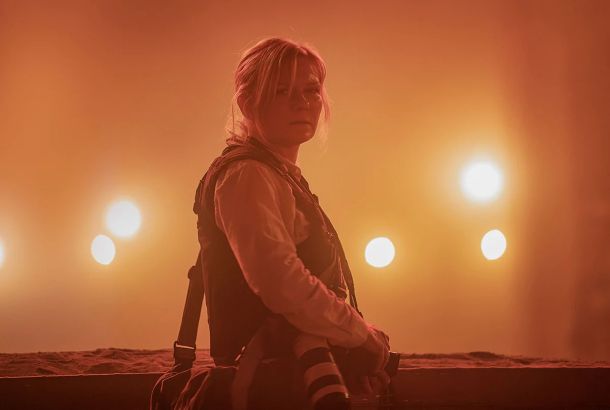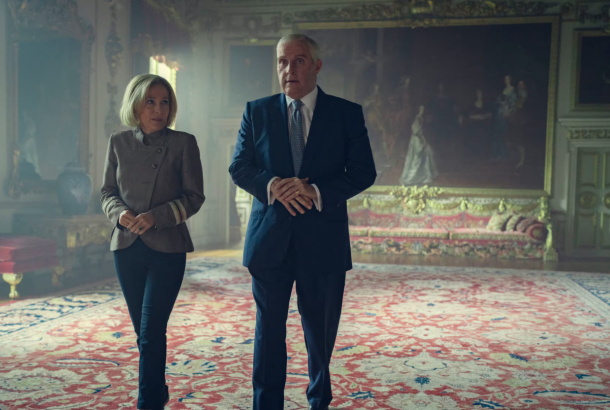In Review: The Best Films of the 2010s
By Tobias Soar

The 2010s have been a decade for film to mature as a medium of storytelling. Animation has come a long way since the 2000s, darker dramas have unfolded, bolder stories have been told, the #MeToo movement changed both films and society, horror hit another golden age, the true power of streaming began, and superhero films reigned supreme at the box office.
Instead of ranking the best films of the decade, we’ve decided to invite writers of the film section and editors from other areas of the paper to write about their favourite film of the 2010s. From indie sleeper hits to box office smashers, there’s something for everyone on this list.
It will be fascinating to see where the medium goes next decade; how long will the horror golden age last? When will superhero fatigue set in? Will we finally see Avatar 2? How will the fight between streaming services and cinemas evolve? Whatever happens, it’ll be a hell of a lot of fun for film fans.
– Tobias Soar, Head Film Editor
Amour (2012) – Michal Wasilewski, writer
The plot of Amour is simple and straightforward: we follow an elderly couple’s ordeal after the wife suffers from a stroke and her husband decides to take full care of her. Raw, devastating and uncompromising, Michael Haneke’s masterpiece deserves praise for showing the transience of life and the power of true love in aspects which modern cinema seems to avoid.
A Separation (2011) – Alex Ferguson, writer
This Oscar-winning piece from Asghar Farhadi proves that all you need to make a brilliant film is a great script and some great actors. A Separation is a drama film in its purest sense — a profound and often confronting meditation on marriage, family and loss. It’s simple, but overwhelmingly effective.
Beasts of No Nation (2015) – James McCafferty, writer
Beasts of No Nation is simultaneously visually beautiful and emotionally disturbing. Abraham Attah gives a mature performance as child soldier Ague while Idris Elba displays a mesmerizingly toxic mixture of brutality, charisma, horror and frailty. Cary Fukunaga uses cinema to force his audience to confront deeply distressing realities about the human ability to inflict suffering in a way that leaves a deep and lasting impression.
Black Swan (2010) – Jay Darcy, Theatre Editor
A psychological horror and thriller, it follows a ballet dancer’s descent into madness as she struggles with the pressure of being the lead in Swan Lake. Life imitates art, with the plot of the film reflecting the plot of Swan Lake. It is a beautiful, disturbing masterpiece that gets your mind ticking.
Drive (2011) – Tobias Soar, Head Film Editor
Nicolas Winding Refn’s slow-burn character study starring Ryan Gosling is a masterclass in subtle visual storytelling. The protagonist, Driver, shows little emotion, so the lighting and editing are used to focus on who, or what, is important in the frame and conversation. The minimal synth soundtrack is the perfect companion to the nail-biting realistic car chases and emotional gut-punches. Call me a basic softboy, but I can’t get enough of this film — no matter how many times I watch it.
The Grand Budapest Hotel (2014) – Josh Sandy, Deputy Film Editor
The Grand Budapest Hotel is not only Wes Anderson’s magnum opus, but it is also the greatest film of this decade. Every single pastel-coloured frame of the film is a gorgeous painting, the acting is sublime, and its plot is pure genius. Its modest 100-minute run time takes you through the entire spectrum of emotions from utter joy to heartbreak — and every moment is an absolute pleasure.
Inside Llewyn Davis (2013) – James Shepherd, writer
The first time I saw Inside Llewyn Davis, I hated it. But now, 5 years on, in my older and supposedly wiser age, this Coen Brothers flick seems the obvious choice for my film of the decade. My initial aversions to the picture’s dreary depiction of the life of an aspiring musician have transformed over time into deep appreciation as Llewyn’s artistic failures seem to increasingly resonate with my own.
Interstellar (2014) – Jade Yong, writer
Interstellar challenges the concept of time and the dimensions of science. It earns utmost praise for probing at the terrifying questions about our universe and its boundless spirit. The film’s poignant ending remains brilliant because it depicts a family destroyed by a father’s scientific ambition, with an ironic sense of idealism.
Lady Bird (2017) – Jasmine Bennett, writer
Lady Bird can be somewhat dismissed as the tale of an irritating, entitled coming-of-age experience. But for me it was different; like every girl, I’d met Kyles. I’d had fights over university entrance. I’d doubted my appearance, I longed for a different life and different class. It was the story of accepting that your relationship with your parents is not fairytale — often it’s full of dislike and frequent arguments. But in the end, it always ends with a phone call begging your mother for forgiveness without saying so. In that, I felt my film of the decade.
Loveless (2017) – Michal Wasilewski, writer
Loveless tells the story of a Russian middle-class family going through a divorce when, suddenly, their son runs away. The priorities of the neglectful parents need to change completely, but nobody seems to act the way they should. Andrey Zvyagintsev’s acclaimed feature is a metaphorical tale touching on the topics of a dysfunctional family, Russian society, and political careerists. It is wonderfully shot, soul crushing, and, most importantly, impactful on all of its levels.
Moonlight (2016) – Zofia Gryf-Łowczowska, writer
My film of the decade is, undoubtedly, Barry Jenkins’ Moonlight. Few films have dealt with the issue is oppressed sexuality with such empathy and sensitivity, depicting personal struggle and community suffering through a non-judgemental lens. Cinematographically beautiful and with outstanding acting, Moonlight stands out from the many social issue themed films I’ve seen this decade and is definitely a hallmark of 2010s cinema.
Nocturnal Animals (2016) – Ellis Coopey, writer
Tom Ford has proven to be a skilled filmmaker. Nocturnal Animals is a breath-taking psychological thriller; Ford gives us fashion ad. lustre which, rather than distracting us, enables us to focus on his character’s complex inner lives. Abel Korzeniowski’s score is the perfect partner, ensnaring us from the Hitchcockian opening credits.
Raw (2016) – Carl Fitzgerald, writer
Julia Docournau’s Raw is the best of all the 2010’s horror reinvention. The story of a vegetarian student who is coerced into eating meat and begins to exhibit cannibalistic tendencies provides the ultimate horror experience in exploring capitalism, misogyny and campus rape culture, with powerful performances and a killer soundtrack.







